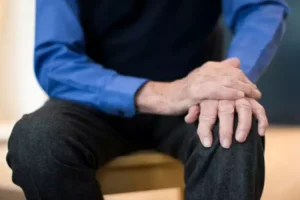
Communicating these boundaries effectively to friends, family, and support systems is essential in fostering mutual respect and understanding. From setting boundaries to cultivating empathy, navigate your journey with confidence. The presence of unhealthy relationships can significantly affect recovery progress. When individuals prioritize their partner’s happiness over their own well-being, they may compromise their own recovery efforts. This can lead to a cycle of dependency where neither party feels empowered to seek the help they need. For more strategies on developing emotional intelligence within recovery contexts, visit developing emotional intelligence in recovery.
Support Their Growth and Changes
In fact, one key sign of addiction is the neglect of personal relationships. When a person is Sober living house struggling with substance abuse, they may make choices that hurt their loved ones. Even though this is often unintentional and a symptom of the disease, it still can erode trust and build resentment.
- Continuous personal growth can help to shape new relationship dynamics in recovery.
- Social media and digital communication can be overwhelming or triggering.
- Each step taken towards understanding and nurturing these bonds reinforces the foundation for a healthy, substance-free life.
- Yoga and movement therapy can reduce stress and improve physical and mental health.
Join our newsletter to stay up to date with all of our programming, resources, upcoming events, & more.

Mending previously harmed relationships requires a commitment from both parties to show that changes have been made. If you’re in recovery for SUD, here’s how you can try to make amends with loved ones whose trust was bruised during addiction. If you’re recovering from substance use disorder (SUD) or you love someone who is, you know just how challenging it can be to heal the harm that may have occurred. This can be especially true when it comes to repairing relationships. Small, manageable commitments come first; then, you can build up to larger ones.
Sharing Personal Stories

In terms of the relationships you want to improve, how long did it take to damage them in the ways that you had prior to commencing recovery? It may not take as long to undo the harm your addiction caused, but it will take time. relationships and recovery How many times before have you promised your loved ones that you would change? ” Perhaps you believed it yourself and genuinely intended to change, but “it” did happen again (and perhaps again and again).
- These workers extend treatment from traditional clinical environments into the everyday lives of individuals, fostering a more comprehensive support system (SAMHSA).
- However; we do suggest prayer, meditation, and 12-Step work as great places to start.
- Rebuilding trust is very much a part of the recovery process, especially if a person with substance use disorders violated another person’s trust at some point in the past.
- If you experienced neglect or abandonment in childhood, for example, you might find yourself afraid of being vulnerable in relationships as an adult.
Often characterized by substance use, manipulation, a lack of respect, or ongoing conflict, these unhealthy relationships drain energy and create resentment or frustration. In some cases, they can trigger a relapse, as the stress from a toxic relationship may lead to self-destructive behaviors. Expressing feelings, fears, and hopes allows partners to understand each other better. Engaging in honest conversations builds empathy, which forms a foundation for deeper emotional connections.
- An essential skill for recovery is finding ways to minimize the harmful effects and maximize the helpful effects of relationships on addiction recovery efforts.
- While sobriety can bring significant positive changes to relationships, it’s essential to acknowledge that there can be struggles along the way.
- Prioritize self-care, set healthy boundaries, and keep open communication to ensure you and your partner respect the recovery journey.
